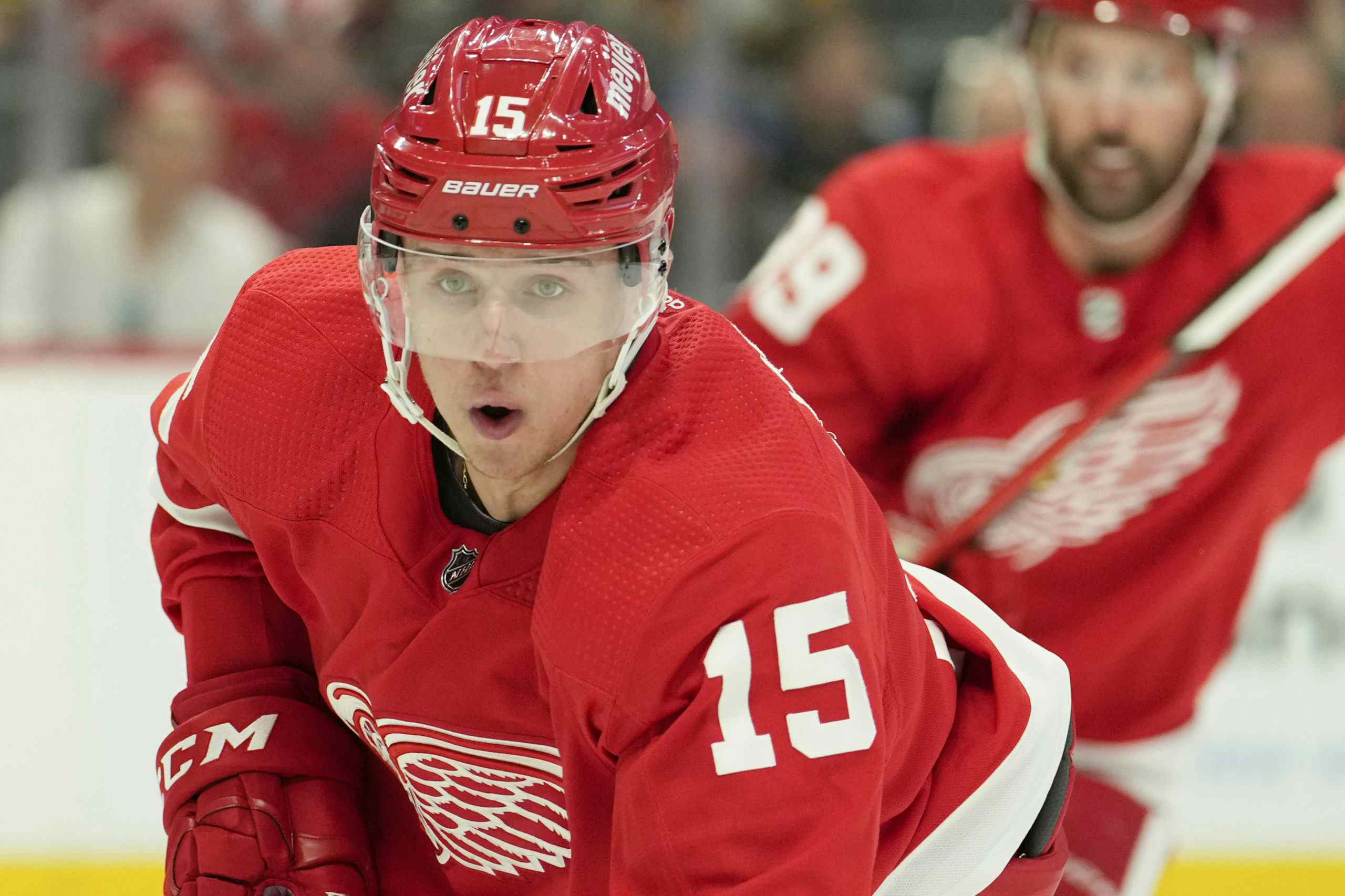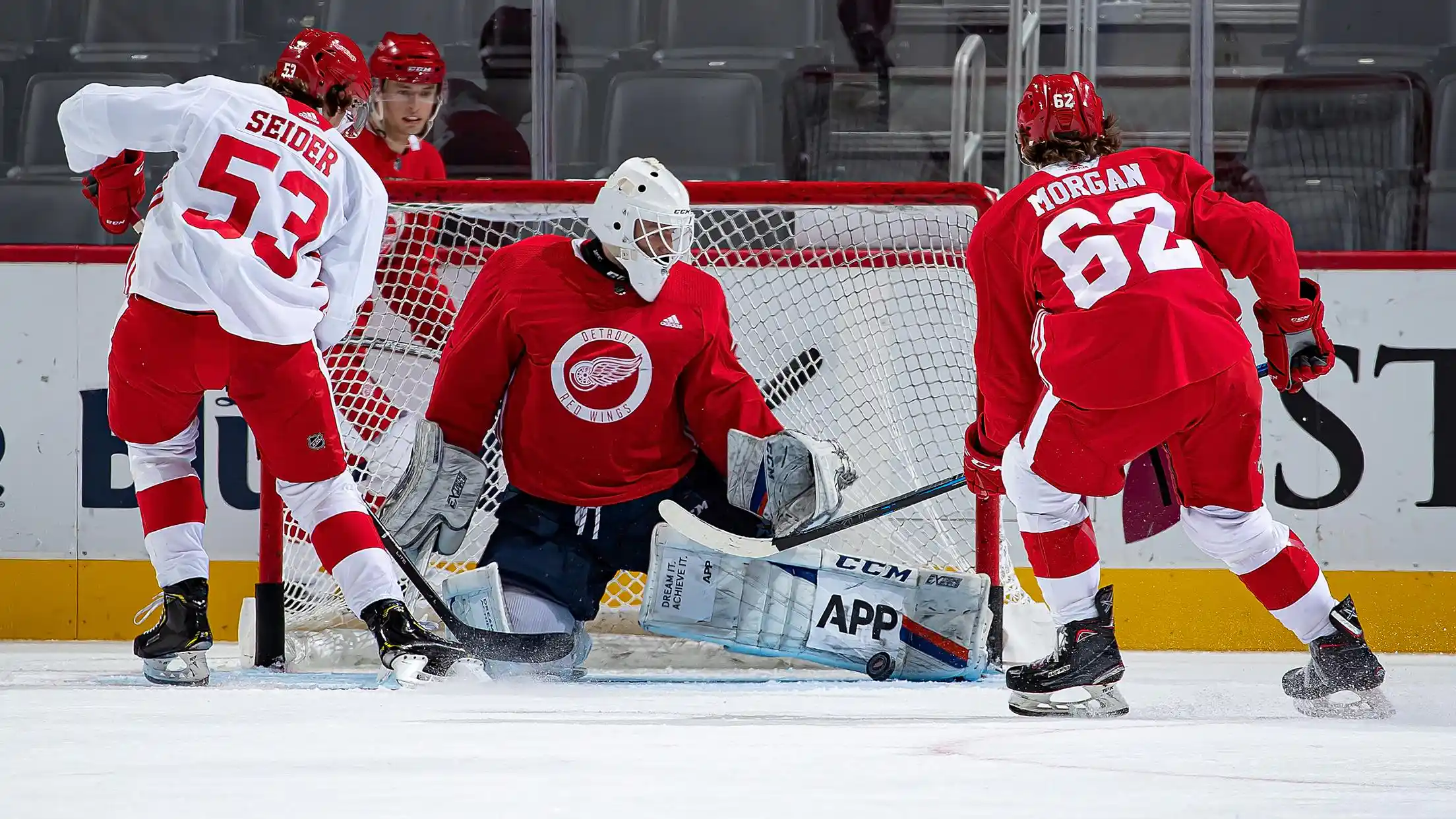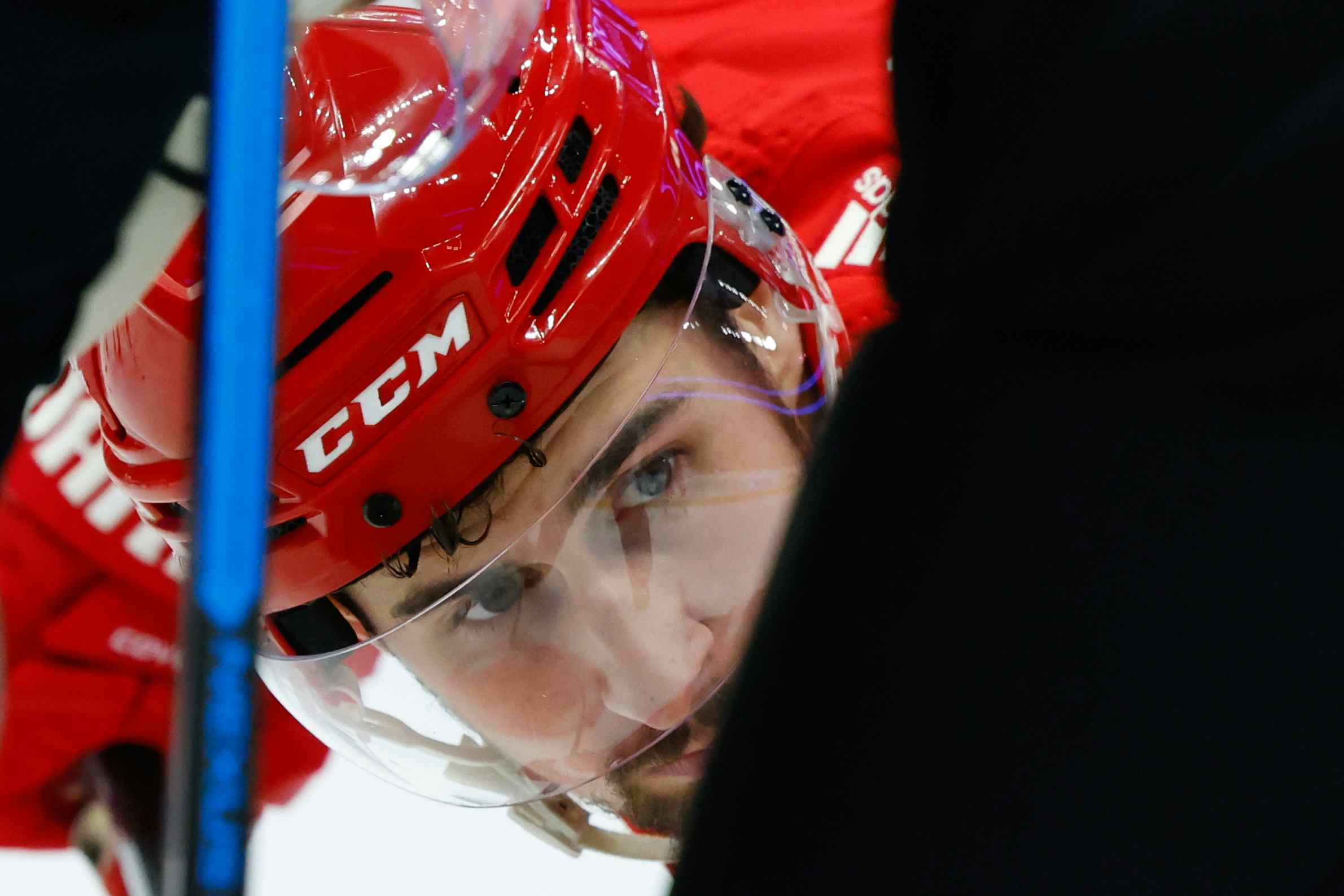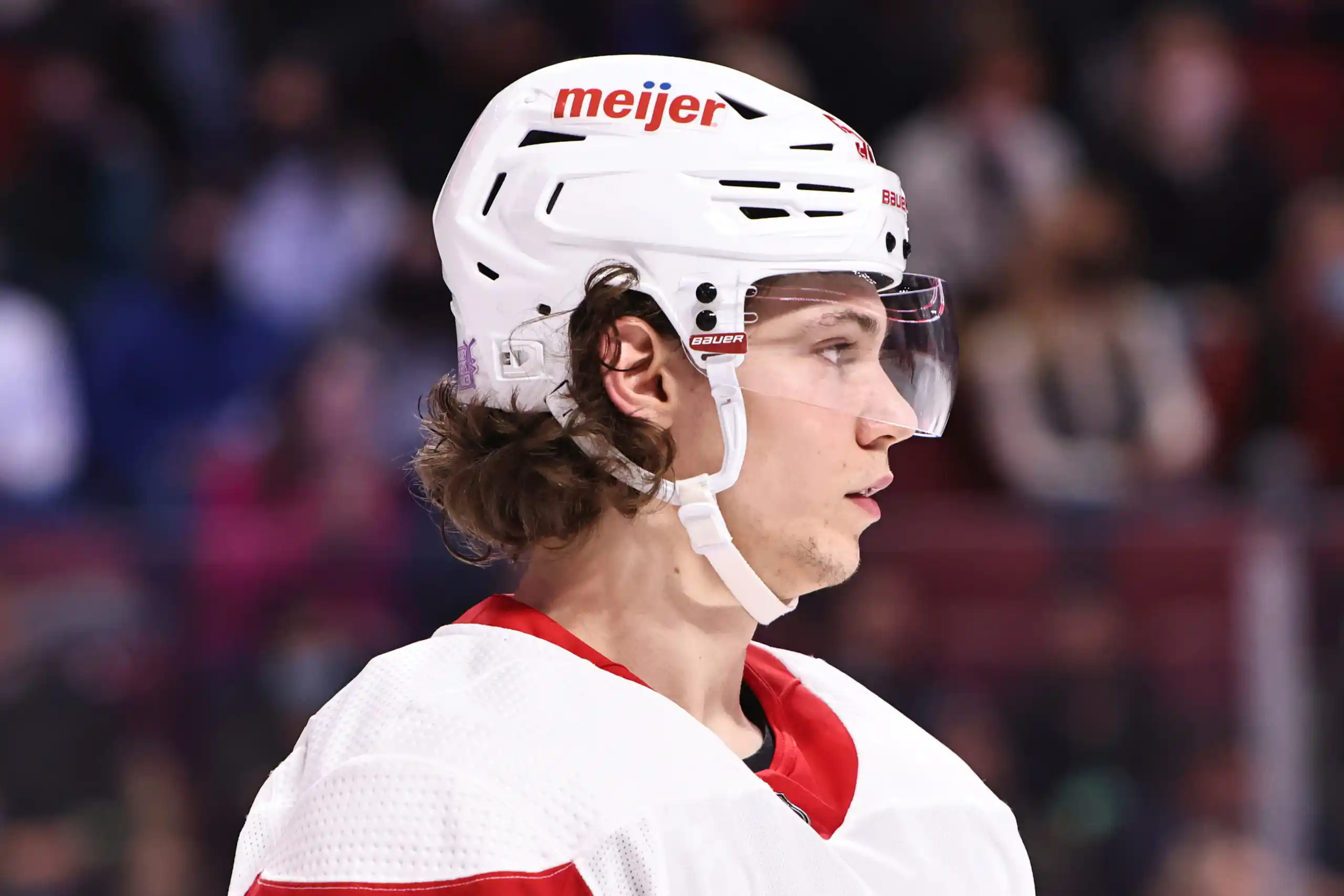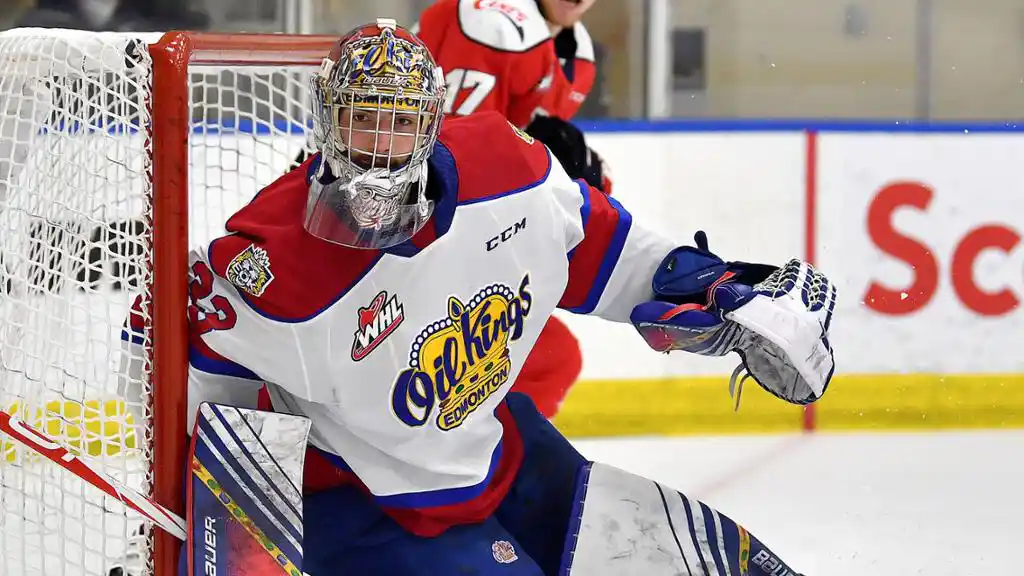Should the Red Wings fire Ken Holland?
By Brock Seguin
8 years agoFor two decades Ken Holland has been revered as one of the best General Managers in the National Hockey League, but the Detroit Red Wings have struggled to make it out of the first round of the NHL playoffs in four of the last five years.
The 25-year playoff streak in unquestionably one of the most impressive streaks in major sports history, especially in this day and age, but the Red Wings have been stuck in mediocrity for the last five years. For a lot of franchises, five consecutive playoff appearances would be enough, but for a franchise that has done as much winning as the Red Wings, being a second-round doormat is not nearly good enough. This begs the question, is it time to move on from Holland?
This is obviously an uncomfortable question for Red Wings fans because Holland has been GM for 18 seasons and during his tenure, the Red Wings have won three Stanley Cups, reached the Conference Finals five times and they have posted an NHL-best 1864 points (830-408-72-132) in 1442 regular season games (second is the Dallas Stars with 1740 points).
Despite the early playoff exits in recent years, many other NHL teams are still trying to emulate the Red Wings, by competing for a playoff spot while simultaneously restocking the roster and farm system with young talent.
“You admire their evolution versus a revolution” Bruins’ owner Jeremy Jacobs told the Boston Herald of the Red Wings last week.
How do you fire a GM, that other teams are trying to imitate? Imitation is ultimately the sincerest form of flattery, right?
Although it is nice to hear and see other teams trying to “be like the Red Wings,” that isn’t the ultimate goal. You are not trying to be a role model, you are trying to win Stanley Cups and the Red Wings have not been close in the last seven years. This has been the longest Red Wings fans have gone between Stanley Cups since their 42-year drought between 1955 and 1997. Let’s hope this drought does not live on for the next 35 years…
For years, we saw Holland stay put at the NHL Trade Deadline and we wondered why? Then, we saw Holland actually make some moves and wished he would have done nothing. A few bad trades stick out in my mind:
- 2012: Holland traded Sebastien Piche and a 1st Round Pick (later turned into Andrei Vasilevskiy) to Tampa Bay for Kyle Quincey.
- 2014: Holland traded Calle Jarnkrok, Patrick Eaves and a 3rd Round Pick (turned into Julius Bergman) to Nashville for David Legwand.
- 2015: Holland traded Mattias Janmark, Mattias Backman and a 2nd Round Pick (turned into Rope Hintz) to Dallas for Erik Cole.
There is a bad trend with those trades. Holland saw a rich prospect pool and traded young pieces away for veterans that did not pan out. His faith in the Red Wings’ scouting department is evident as he traded away a first, a second and a third, believing they’ll find gems in the later rounds. None of those deals brought great returns for the Red Wings and now Vasilevskiy is one of the most highly-touted goaltending prospects, Jarnkrok plays in the Predators top-6 and Eaves and Janmark are regulars in the Stars’ lineup. On our side of the fence, we watched Cole and Legwand struggle and promptly leave after the year. As for Quincey, he has been solid, but first round pick solid? Not likely.
Holland also increased the loss of quality prospects when he lost both Andrej Nestrasil (to Carolina) and Landon Ferraro (to Boston) on waivers while electing to keep veteran players like Joakim Andersson. Holland and the Red Wings have had a deep prospect farm for a long time, but in the last four years we have seen him essentially give away four NHL-ready prospects for virtually nothing.
Not to dwell on it too much, but Holland has also made some questionable comments in regards to some of his prospects, specifically Anthony Mantha, whom he called a “spare part” during Grand Rapids Calder Cup playoffs in 2015. This is a player who is at the top of your prospect list, yet he always seems to get bad mouthed by the Red Wings’ brass. Not a great way to motivate a young player.
The loss of prospects and misusing of the farm system has been one of Holland’s flaws in the last decade, but the biggest problem with the Red Wings’ right now is an abundance of bad, veteran contracts that Holland signed.
- There is no where else to start but the day he elected to re-sign Johan Franzen instead of Marian Hossa. Not only did he re-sign Franzen, he inked the then 30-year-old winger to an absurd 11-year, $43.5 million dollar deal. 11-years… He signed him for a $3.955 million per year until he was 41-years-old. Forget the fact Franzen will likely never play again, he could still be scoring 20-goals per year right now and that contract would still be bad.
- Then there is the Henrik Zetterberg contract. Zetterberg, our captain, obviously an outstanding player, signed to a 12-year, $73-million dollar extension. Another deal that locks a player in until he is 41-years-old. Has Holland discovered a fountain of youth that nobody knows about?
- Holland also elected to sign Stephen Weiss over Valtteri Filppula. Weiss got a five-year deal worth $24.5 million and he tallied 29 points (11G / 18A) in a whopping 78 games before being bought-out. According to NHLNumbers.com he continues to carry a $1.067 million cap-hit until that contract runs out.
- Lastly, after three years at an acceptable $3.25 million, Holland decided to re-up Jonathan Ericsson for six years $25.5 million ($4.25 annual cap-hit) in 2015. Not only should Ericsson be a healthy scratch, he is signed until 2020-21and makes as much money as John Klingberg and Marc-Edouard Vlasic.
The problem with these bad contracts is that they block the Red Wings ability to bring in more talented players via free agency, trade or even just as call-ups from Grand Rapids. These deals have hindered the Red Wings for years and they will only get worse as the years progress. However, we have also seen over the years that no contract is untradeable. The Maple Leafs have done a great job getting rid of horrible contracts, like Dion Phaneuf and David Clarkson, so the Red Wings are not locked in, but they need to find teams willing to take on ugly, ugly deals like the one Ericsson is signed to.
Despite some bad trades and signings, all of the good things that Holland has done cannot be overlooked. The Red Wings continue to draft and develop players at an impressive rate, he has signed good players to great deals and has built a roster capable of making the playoffs every single year despite an aging core of players.
The question still remains, should the Red Wings fire Ken Holland?
If they do fire him, who do they hire? The immediate response from virtually everyone would likely be Steve Yzerman. The Red Wings’ legend has done tremendous job as the GM of our new arch rivals the Tampa Bay Lightning. Yzerman was hired in Tampa Bay prior to the 2011-12 season and the Lightning have gone 198-144-34 (430 points), which is good for 13th in the NHL. They have made the playoffs for three consecutive years, inducing a Stanley Cup Finals appearance last year and a potential run this year after beating Detroit in the First Round again.
Here is where it gets interesting. Yzerman is currently in the first year of a four-year contract with the Lightning, so getting Yzerman could be next to impossible. However, the Red Wings could have already had Yzerman as GM according to Gregg Krupa of the Detroit News. Before Yzerman ever left the Red Wings front office, Red Wings’ owner Mike Ilitch approached Holland about moving up in the front office and allowing Yzerman to be GM and Holland declined, so off Yzerman went.
Now the heat is on for Holland. The Red Wings’ playoff success has been limited and there are a boat-load of unrestricted and restricted Free Agents for the Red Wings to consider. Will it be Holland making those decisions? Yzerman? Someone else? Only Ilitch really knows.

Recent articles from Brock Seguin

